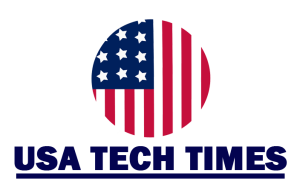The Darwinian Policy MakingStrategy was designed and used over time since 2015 and formally introduced in a book titled Navigating the Decision Space: A New Game-Changer for Decision-Makers by Ahmed J. Kattan.
It is a purely objective approach to decision-making and allows decision-makers to drive a population toward a certain target. The whole idea of this proposed strategy is based on Evolutionary Computation (from the Machine Learning literature) inspired by Darwin’s Theory of Evolution (from the Biology literature). The Darwinian Policy Making Strategy can be applied in many commercial applications, such as product sales, human resources management, and mass marketing.
The strategy is simple and mainly requires three elements: a) target population, b) target function, and c) reward mechanism environment to drive the population to maximize their target function.
Usage of Darwinian Policy-Making Strategy to Create Public Policies
The idea behind the Evolutionary Computation field, inspired by Darwin’s Theory of Evolution, is that offspring can inherit knowledge and experiences encoded in individuals’ DNA. New offspring carry out their parents’ DNA, which encodes some of their knowledge and experiences. In addition to their encoded DNA, offspring will also learn new knowledge in their lifetime and accumulate it in their DNA to be passed, in their turn, to their offspring. Darwin argues that the species will develop resilient characteristics to adapt to their environment when this process is repeated over multiple generations. In this process, individuals who did not manage to utilize their DNA knowledge and enhance it with newly learned knowledge will probably die before they produce new offspring. Thus, the process of evolution naturally discriminates weak individuals. Hence, the well-known term survival of the fittest.
Imagine we take this concept further and apply it to a population of companies in the context of public policy-making. We allow companies to compete toward some targets, allowing the best companies to survive and expand (i.e., mutate in evolution terms) or generate new spinoffs (i.e., reproduce in evolution terms); thus, the overall economy improves. Companies are economic entities with characteristics toward certain objective/utility functions (mostly maximizing sales of products or services). They operate in a market regulated by a market maker (mostly the government). Market makers set the behaviour of companies using regulations and enforce the execution of these regulations by executive authorise (e.g., police force). There is no shadow of doubt that companies’ healthiness and right behaviour is a key element toward economic prosperity. Also, healthy market makers will improve their policies to push boundaries and improve their markets, services, job creation, and exported products/services for higher participation and competition in the global economy.
Since companies act as economic entities driven by utility functions, they are like creatures with minds of their own. Thus, it is not always that all companies strictly follow market maker’s instructions. Companies evolve over time and develop their own behaviours to best fit them and allow maximisation of their utility functions. In most large economies, companies develop undesired behaviours (or shortcuts) that hinder market makers’ targets. For example, hide income to avoid tax, transfer money overseas over several fragmented channels, produce products with less efficient materials, or hire illegal immigrants to pay less wages.
The idea of the Darwinian Policy Making Strategy is to disturb the population’s (i.e., companies’) utility functions by creating competition on essential resources (e.g., government contracts, subsidy funds, eligibility of tax exemption, worker visas, etc.) where all companies compete to get specific resources and, in the process, they have to adapt according to the competition’s rules, in order to maximise their winnings. To cause a disturbance in the market of utility functions, the competition’s reward must be lucrative enough that winners gain a bonus to compete in the market. To this end, those who fail to win the competition will have a harder time fairly conducting business against winners; hence, their probability of survival in the market will become slimmer with time. To this end, the above-mentioned competition should be designed not to be a luxury reward; rather, it should be designed as a business survival matter. Naturally, the concept of survival of the fittest will apply here as some weak companies may not be able to adapt fast enough and thus exist in the market.
About the Author
Dr Ahmed Kattan (born 1983) is a Saudi Arabian technocrat who has spent the majority of his career in the public sector. He designed the Darwinian Policy Making Strategy. He is, also, well known of using Machine Learning and Agent Based Simulation to design general polices and new governmental services. He led the launch of several new services and products in the Ministry of Labor and Municipalities, Rural, and Housing.

In 2023, Dr Kattan published the Darwinian Policymaking in a book entitled Navigating the Decision Space: A New Game-Changer for Decision-Makers. The book links Decision Theory, Game Theory, and Machine Learning for decision-making.
He obtained his bachelor’s degree in computer science and information systems from Jordan University of Science and Technology and subsequently completed his MSc in Software Engineering from the University of Essex. He continued his academic pursuit by obtaining a PhD in Evolutionary Computations and Machine Learning from the University of Essex in 2010.










